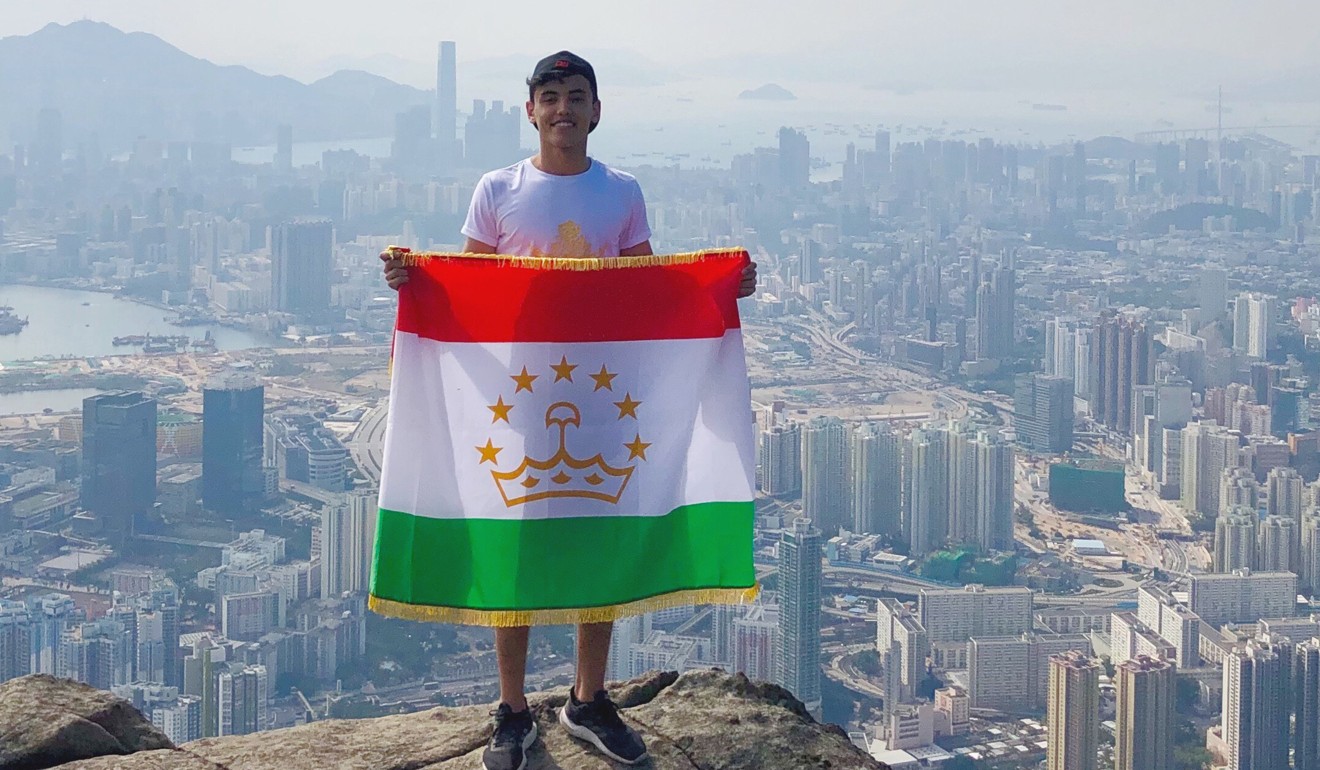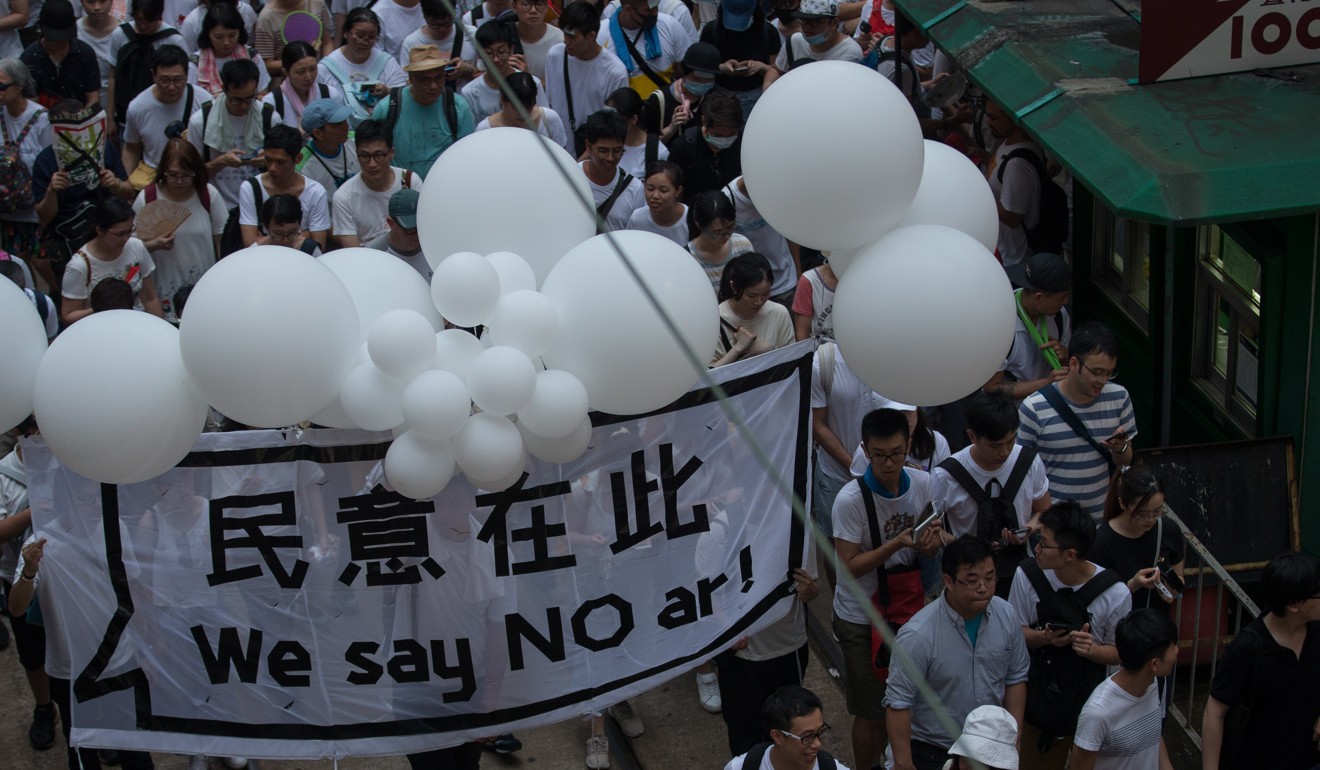
Hong Kong’s Central Asian students feel the heat of extradition bill protests
- They make up a fraction of city’s 18,000 non-local students, and recent political turmoil has left some fearing for their safety
- Others praise Hongkongers for being inspiring, socially-conscious, friendly
Since protests against Hong Kong’s extradition bill began in June, student Rustam Juraev’s parents have been calling him from Tajikistan three times a day to make sure he is safe.
“Each time my parents see the news, they call me to make sure I’m fine. They call me three times a day to check on me and warn me to avoid crowds and stay away from protests, ” said the 18-year-old who is studying applied economics at Hong Kong Baptist University (HKBU).
The weekly protests, which on some occasions had descended into episodes of violence, have made headlines around the world and have had an impact on the city’s small student population from Central Asia. There are about 300 of them studying in Hong Kong’s eight publicly-funded universities, out of 18,060 non-local students in the city.
This is not alarmist talk: Hong Kong is heading for a breakdown in law and order
Of the 10 students whom This Week in Asia spoke to, seven said they had chosen to come to Hong Kong because of its reputation as a safe, law-abiding city, with a low crime rate compared to their home countries.
For example, in Kazakhstan, muggings and thefts have occurred in cities in rural areas and expatriates have been attacked and violently mugged, mostly at night, according to a travel advisory from the British government. It has also highlighted the possibility of terrorist attacks in Tajikistan and muggings and theft in Kyrgyzstan, with a suggestion to “avoid all demonstrations” that take place on political and socio-economic themes there.
On the other hand, Hong Kong was ranked ninth in the world for safety, according to Safe Cities Index 2017 report conducted by the Economist Intelligence Unit,

Sanzhar Syzdyk, a second-year HKBU student from Kazakhstan, said his father had visited Hong Kong and was told that it was “safe with many opportunities”.
“I read that the rate of crime is low and police are always patrolling around the city,” said the 18-year-old Syzdyk, who is studying mathematics and statistics.
Hong Kong extradition bill: this is no Singapore living in fear, this is a city ripping itself apart
But fears of mass clashes in the city have heightened since a rod-wielding mob went on a rampage in northern Hong Kong’s Yuen Long MTR station on the night on July 21, indiscriminately hitting anyone in their path and injuring at least 45 people.
They targeted people dressed in black– the colour of the protest movement against the now-suspended bill – and there were no police officers around to stop them.
Gassyr Bakubay from Kazakhstan found out about the brutal assaults on social media. Most of his friends commute by MTR, and the attacks on innocent bystanders worried him.
“I couldn’t even watch it. I was deeply saddened by what happened, it broke my heart.”
“The fact that even passengers just standing by were victims of the attack made me feel afraid for my friends,” said the 19-year-old who is studying computer science at HKBU.
Youngsters from Central Asia have recently been attracted to study in Hong Kong because local universities provide them with good opportunities, such as scholarships and tuition discounts under the HKSAR Scholarship Government Fund scheme. The scholarship needs to be renewed each year and require recipients to excel in academic performance and be active in university life.
The scholarship amount varies from HK$80,000 to HK$170,000, which effectively covers both the tuition fees and living expenses of the recipient.
For the 2019-20 academic year, scholarships under the Belt and Road Initiative, which is China’s ambitious global infrastructure project to improve trade, were made available for students from Central Asia.
Mental health, the victims on all sides of Hong Kong’s extradition bill crisis
On June 9, when an estimated one million people marched peacefully to protest the bill that would allow the transfer of fugitives to jurisdictions that Hong Kong had no extradition treaty with, thousands of people in Kazakhstan gathered to demonstrate against an election they said had been rigged.
The protestors claimed the polls – called after long-time leader Nursultan Nazarbayev resigned after offering a handpicked successor – were not free and fair. Kazakhstan, the world’s ninth-largest country, has a population of 18.6 million.

Media reports said hundreds of peaceful demonstrators, along with reporters and activists, were detained by Kazakh police in cities such as Almaty and Nur-Sultan.
Khalil, who is from Almaty, said the protests in Kazakhstan felt like “an apocalypse”.
“I can’t imagine what it feels like if there are millions marching (in Hong Kong),” he said.
Khalil, however, said he was impressed with how the Hong Kong authorities had handled the matter then.
Scoffing in Singapore, praise in the Philippines: how Asia sees Hong Kong’s extradition bill protests
According to media reports on June 10, 19 people were arrested and 358 under investigation following the June 9 protest, which Khalil said was a better situation than in Kazakhstan where “5,000 people protested and 500 were detained”.
But with no seeming end in sight to the protests, other students said they were reconsidering their plans to stay on in Hong Kong. Over 10 economies have issued travel alerts for the city – with Singapore being the latest to issue one on Friday – and there have also been reports of more Hongkongers considering migrating.
“To be honest before the protests,I was planning to stay in Hong Kong after graduating from university, but now I’m looking at other places as well because I’m not really sure about the future of Hong Kong,” said Juarev.

But others said they still believed that Hong Kong was the best place for them after graduation.
Fariza Zhorabek from Kazakhstan, who is starting a Masters of Philosophy course at Hong Kong University of Science and Technology, said she felt inspired and empowered by Hongkongers.
“I feel that Hong Kong people have the right to protest, also their determination as a nation inspires me. They’re fighting injustice and fighting for their rights,” said Zhorabek, 21, who completed her first degree in biomedical engineering at the Hong Kong Polytechnic University.
“With these protests taking place I feel the spirit of unity of Hong Kong people. They are not fearful, especially compared to protesters in Kazakhstan. They believe in justice,” she said.
Has Carrie Lam lost Hong Kong in her bid to push through the extradition bill?
Most of the Central Asian students have been encouraged by their local friends, and praise them for being “very caring”. Zhorabek said her colleagues sent her information about the location and time of the protests so she would not get into trouble.
“As most of the information about the protests is in Cantonese, my friends translate it for me,”she said. “Some of my local friends tell me not to wear black or say ‘don’t bring an umbrella’,” Zhorabek said with a smile.
Bakubay recalled seeing the much-watched videos of Hong Kong citizens cleaning the streets the morning after the June 9 protests, and a crowd of protesters making way for an ambulance, which had become defining moments for the city’s protest movement.
“It made me proud of the city I study in. The way these peaceful protests were held were examples of Hong Kong people’s mindfulness and conscience. That’s why I don’t worry about my safety in Hong Kong,” he said.
Adilet Abduvaliev, a 20-year-old arts student at Hong Kong University, still believed that the city remained a safe place. “I feel safe here even after the protests began. I think people here are very friendly and I know that I can rely on them,” said Abduvalieve, who is from Kyrgyzstan.
